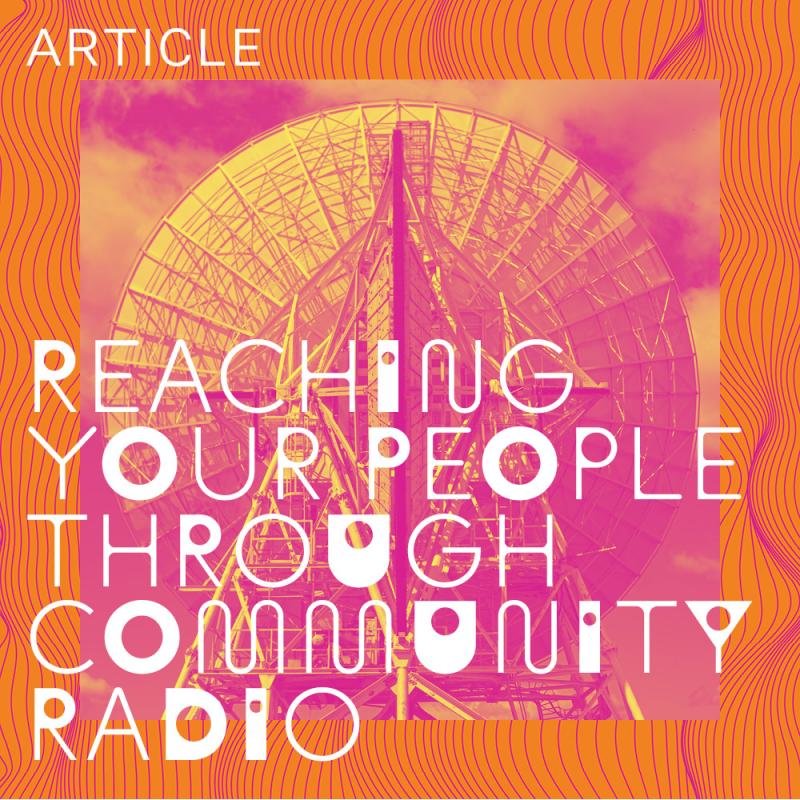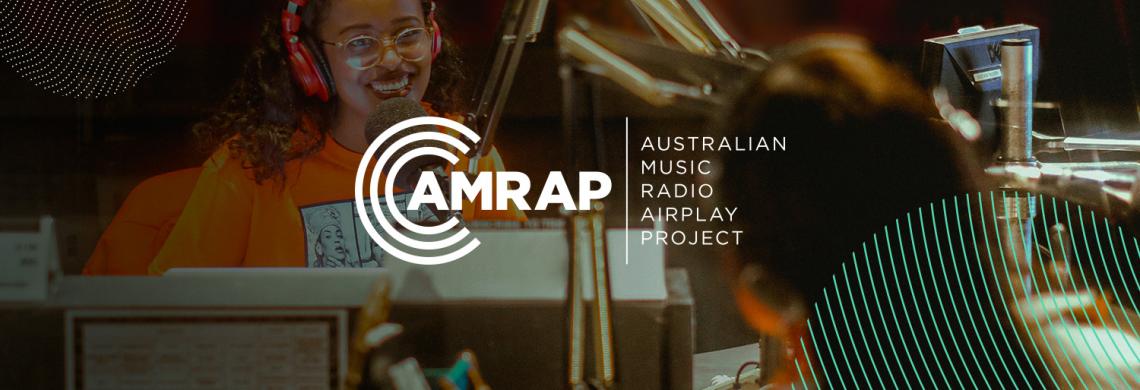Reaching your people through Community Radio

If you’re looking to get your music out there, contacting your local and community radio is a vital and exciting step! While you and/or your band may want to jump straight into contacting commercial channels, or even Triple J, be patient. Don’t neglect, or forget how important community radio is. Embrace Community radio. It rules!!
Local stations such as Edge Radio and PBS provide an incredibly valuable service to local communities by giving and presenting a platform to those who may not always be represented by mainstream media.
If you’re well-versed in the Tasmanian music scene, you likely know the name Aeron Clark! Aeron is the music Director at Edge Radio, and hosts The Map - a show dedicated to showcasing local and independent music.
“Community radio is where you want to submit your music” tells Aeron, “because they’re not interested in gatekeeping. They’re not trying to curate a specific sound within their local music scene, they’ll play as much as possible because they want to support you!”

There are loads of benefits to getting around community radio, including:
A true local focus: Community radio stations typically have a local focus, providing news and information that is relevant to the specific community they serve. This can include information on local events, traffic and weather updates, and emergency alerts.
Utmost support for local music: Community radio stations are some of the biggest supporters of local, upcoming artistry. This gives emerging artists an opportunity to get their music on air and be heard by a wider audience, as well as help promote the local music scene as a whole!
Connecting community: Community radio is not only a means of entertainment or information but also a way to connect with communities. It provides a platform for locals to discuss their concerns, participate in the public discourse and have a real impact on local issues.
Long-lasting relationships: Aeron from Edge Radio says there’s something incredibly special about working in community radio, and the mutual bonds that come with it!
“The thing with community radio is you do build these lasting kinds of personal relationships between the presenters, station staff and musicians! I’ve made so many friends out of people who submitted their music, especially through interviews!”
The people in community radio generally live and breathe local music: Most staff working for community radio are passionate volunteers. They don’t do it to get their voice heard, or to showcase the chart-topping hits of the week. They generally do it because they love local, emerging music and getting involved in the surrounding community!

So, how do you go about getting your music on a community radio station? Here are a few tips:
Do your research: Check out community radio stations in your area and take note of the type of music they play and if there are any submission guidelines. Look out for segments where they specifically showcase music from new or independent artists! Aeron says it’s also okay to DM your local station on social media to ask for the best point of contact, and how to submit your music to them.
Know the line between networking and relationship building: Networking is so vital, and can be particularly beneficial in smaller states like lutruwita/Tasmania. Get out there and meet other musicians, volunteers and staff from community radio stations! The more people you know in the local music scene, the better chance you have of getting your music out there. But we can’t stress enough: be sincere about it. Don’t be clinical. Don’t be capitalist. Go to these spaces wanting to listen, learn and engage. Your mindset should be to make friends and bond with like-minded people, not to get your name or music heard.
Don’t hesitate, submit your music: We don’t mean just attach your music file and hit send. Be personable, introduce yourself! An email with just the audio file, whatever your intention, can perhaps come off as arrogant rather than nervous. Aeron, who gets a plethora of emails on the daily, has this advice:
“If you’re making direct contact, introducing yourself, that’s good! Send me an email saying ‘hey this is me, here’s a little bit of my music, and about me, I’d really love it if you’d have a listen’. Personal contact is very important! If you're not sure what you're doing, that's okay! Don't be afraid to ask for guidance. That's another thing community stations are here for - to help you learn how to interact with media outlets..”
Sign up to AMRAP: AMRAP is a great non-profit organisation that provides a platform for emerging/independent musicians to get their music heard around the country - and for community radio stations to have access to new local music!
Register as an artist on their website. Once you're all set up, you can upload your music and send it in for consideration. They also accept submissions through CD, USB or online platforms like Soundcloud, Bandcamp, or Dropbox. Make sure to check out their submission guidelines for any specific formatting or tagging requirements for your tracks.

Quality isn’t always everything: When submitting your music make sure it is recorded, produced and mastered to a standard. Aeron’s advice here is to never go lower than 192 kbps. Once you get above that, especially above 320kpbs, you can’t really tell the difference on air. If you believe in what you’ve done, send it!
“If the songs are strong, they'll resonate with people. We've played early demo recordings from bands who've ended up being nominated for the Australian Music Prize a few years later” says Aeron.
Be patient: Community radio stations are run by volunteers, so it might take a while for people in the station to listen to and review your music. Don't get discouraged if you don't hear back right away. Follow up in a few weeks if you haven’t heard back.
